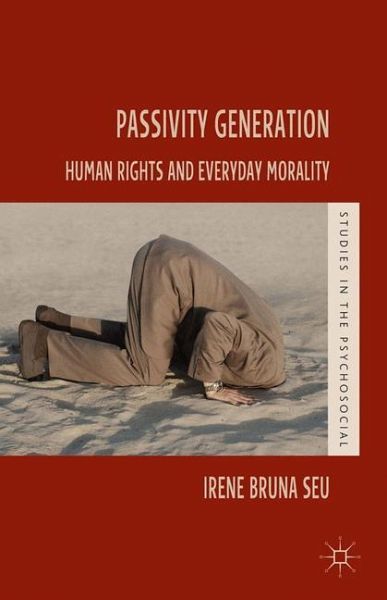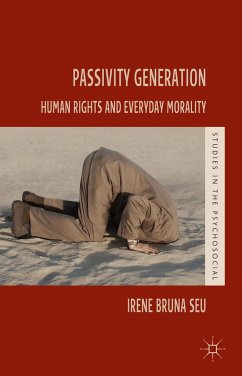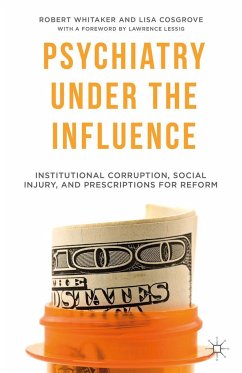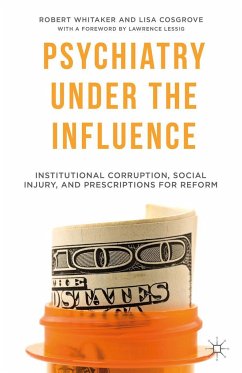
Passivity Generation
Human Rights and Everyday Morality
Versandkostenfrei!
Versandfertig in 6-10 Tagen
38,99 €
inkl. MwSt.
Weitere Ausgaben:

PAYBACK Punkte
19 °P sammeln!
The book applies a unique mix of psychosocial methods to understand the complexity of emotional, cognitive and ideological responses to human rights violations and examines the banal quality of the everyday vocabularies that people use to make sense of human rights and their violations, and justify not intervening. In Passivity Generation , Irene Bruna Seu offers a vivid and compassionate account of how past experiences of trauma and suffering affect individual (un)responsiveness, and explores the psychodynamics of passivity and its underpinning defence mechanisms.














